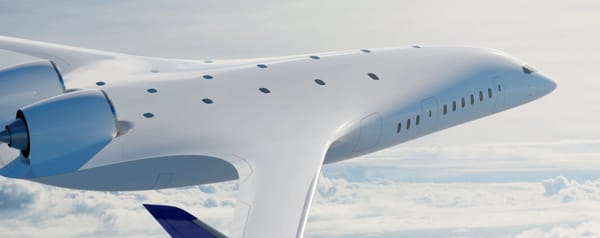TechAir Launches: A New Non-Profit Airline for Hi-Tech Sector

The aviation industry is no stranger to disruption, but TechAir’s planned debut this January feels uniquely tailored to the times.
Positioned as a solution for Israel’s hi-tech sector, this nonprofit airline is stepping in to address a critical gap in air travel between Israel and the United States.
With flights set to begin on January 21, TechAir is not just offering a new route but also rethinking what an airline can be.
Why TechAir Matters Now
The backdrop for TechAir’s launch couldn’t be more pressing.
Following months of geopolitical tensions and security concerns in Israel, many international airlines have scaled back or canceled flights to and from the country.
This has left travelers—particularly those in Israel’s thriving tech ecosystem—scrambling for options. For an industry that thrives on global connectivity, the lack of reliable travel has been more than an inconvenience; it’s been a logistical nightmare.
Enter TechAir. Backed by Israel’s High-Tech Forum, this initiative aims to restore some semblance of normalcy for tech professionals and investors who need to shuttle between Tel Aviv and New York.
But what makes TechAir intriguing is its nonprofit model.
Unlike traditional airlines, any operational profits will be redistributed to advance ticket purchasers, making it as much a community-driven project as a commercial venture.
What to Expect from TechAir?
TechAir plans to operate three weekly flights between Tel Aviv and New York through March 2025, utilizing Airbus A330-900 aircraft under a wet lease arrangement.
This means the planes and crew are provided by another company, though operational responsibilities like maintenance and insurance remain with the lessor.
Flights will depart Tel Aviv at midnight and land at JFK Airport early the next morning, offering a convenient schedule for business travelers.
Here’s what stands out about TechAir’s approach:
- Affordability: Initial presale tickets were priced at $900 one-way or $1,550 round-trip—competitive compared to other carriers operating on this route.
- Accessibility: While aimed at the hi-tech sector, anyone can book a seat, making it inclusive despite its niche branding.
- Commitment-Based Model: Flights will only operate if at least 35% of seats are booked in advance, reflecting the project’s cooperative ethos.
Challenges on the Horizon
While TechAir’s mission is admirable, it faces significant hurdles.
For one, it must comply with Israel's Air Passenger Protection Law (commonly known as the Tibi Law), which mandates compensation for delays exceeding eight hours.
This adds financial risk for an airline operating with slim margins and just one leased plane.
Moreover, its limited operational window—from January through March—raises questions about long-term viability.
- Can it scale beyond its initial three-month run?
- Will it attract enough demand to justify expansion?
These are open questions that will likely determine whether TechAir becomes a permanent fixture or remains a stopgap solution.
A Broader Trend in Aviation
TechAir’s launch also reflects broader trends reshaping the airline industry.
From digitalization to nonprofit ventures, airlines are increasingly exploring new models to meet evolving customer needs. In 2024 alone, industry-wide investments in technology surged by 25%, focusing on automation, passenger experience, and sustainability.
While TechAir isn’t explicitly part of this tech-forward wave, its mission aligns with the spirit of innovation driving these changes.
My Final Thoughts
TechAir is a bold experiment in community-driven aviation.
By prioritizing affordability and accessibility during a time of crisis, it offers a lifeline not just for Israel’s hi-tech professionals but for anyone needing reliable travel between Tel Aviv and New York.
Whether it succeeds long-term remains to be seen, but as far as experiments go, this one feels worth watching closely.





